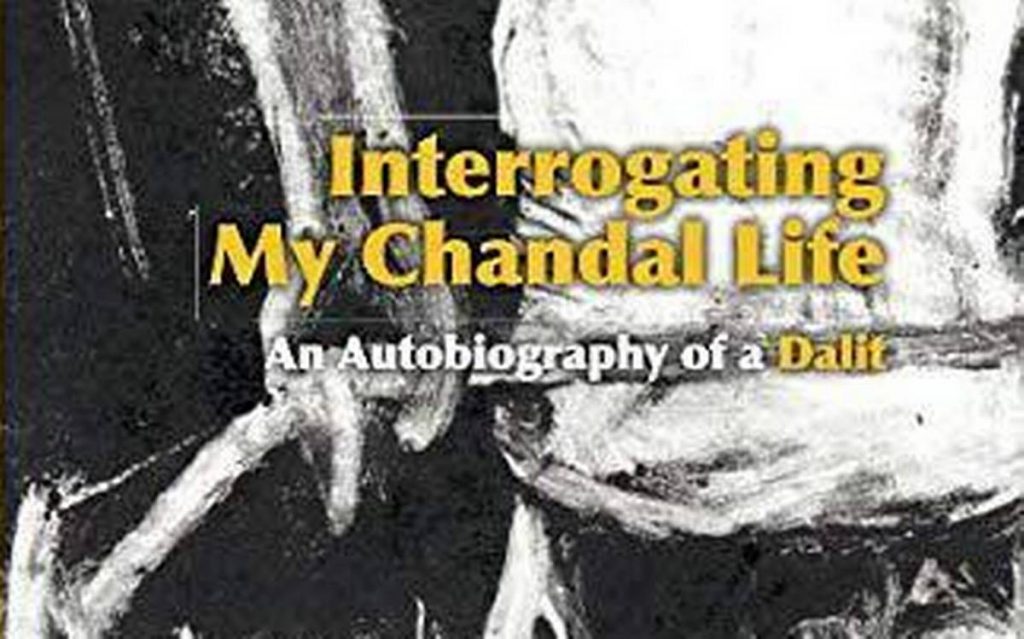Sudha Devi Nayak
There are several Manoranjan Byaparis we see every day in the periphery of our existence, at the cross roads selling flowers, at tea shops serving tea, at the railway stations carrying loads, at our homes cooking and cleaning and doing the work we do not wish to do. Yet we don’t see them, they evade our sight, they evade our conscience. We come across such another in the leaves of the book ‘Interrogating my Chandal Life’. Written in the original Bengali ‘Ittibritte Chandal Jiban’, the book has been adroitly translated by Sipra Mukherjee, a professor of the English Department of Jadavpur University.
The directness of the style, without frills brings home the stark tragedy of a young child and adult exposed to hunger, violence, exploitation and humiliation all his life. Living in the margins of class and caste, Byapari went through the vicissitudes of life against the same backdrop of deprivation. His early life, as he crossed over from East Bengal during Partition, was spent in the refugee camps of West Bengal and Dandakaranya. It was a miserable existence where he saw humiliation of his parents in eking out a living and supporting a family in dire circumstances. Unable to bear the pangs of hunger and the daily battle for survival, the young boy escapes to an imagined life of freedom to far off places such as Assam and Uttar Pradesh only to be further disillusioned.
After a sojourn of five years he returns home in Calcutta and faces his mother, whom he had abandoned; he is unable to tell her the excruciating torture and agony he endured during his travels. Once again he tries to make a living in the city and then comes the brush with the Naxal movement that was fighting for a classless egalitarian society without exploitation. While the ideals stirred his heart, Byapari at one stage felt his family in their distress needed him and he shifted with them to Bastar district of Dandakaranya which covered parts of Odisha and Madhya Pradesh. They were on doles that lasted less than a month and were subjected to back-breaking labour for a pittance. So, back on the run, Byapari heads to Calcutta and life revolves around the railway station where he lives amid unabated violence and his name enters the police records as an antisocial.
He goes on to Barddhaman and comes away caught up in a terrible accident with burns and scars; one fine day, he is picked up by the police and enters jail. This is the breakthrough moment for him where he meets his mentor, his “master moshai” who teaches him the alphabet. He, at the age of twenty-four, finds the jail his school and the cement floors and the soft earth his writing materials. By the time he leaves jail, he is a literate and dreams of writing books. He starts reading, and while plying his rickshaw, it is his providential encounter with the great writer Mahasweta Debi that reinforces his faith and sets him off as a writer when she publishes his pieces in her magazine.
The written word suddenly opened up unimagined worlds and he wrote with an all-consuming passion under conditions, however demeaning. Meanwhile Byapari became a family man with additional responsibilities. He moved on to Bastar and came under the spell of Shankar Neogi, the activist for tribal welfare. He aligned himself seriously with the cause fighting for him till Neogi was killed. Disillusioned when the cause could not move forward, he came back to Calcutta and worked as a scavenger, a cook, and a security guard, but never let up on writing. Writing for different magazines and newspapers, Byapari brought out his first book ‘The Final Turn of the Circle, which he sold at the Calcutta Book Fair. That is the story of the miserable waif unlettered and impoverished, who weathered the storms of life and managed to write his story. The memoir is overwhelming, with its tragedy slowly steering its way through a tunnel of impenetrable darkness to that ray of light that gave him the reason to live.
